That’s what India Post Payments Bank promises. It can be a game-changer in providing banking services to rural masses. Its rollout, however, is delayed.

A project worth ₹1,000 crore by the department of post will serve as a shot in the arm for financial inclusion in the country. The department, say officials aware of the matter, has zeroed in on the US based Hewlett Packard (HP) to set up the technology infrastructure for its countrywide rollout of a payment bank – a stripped-down version of a bank that would allow a limited savings deposit of up to ₹1 lakh, but not loans and credit. currently negotiations are on between the two and a formal announcement is awaited.
HP will do an end-to-end job of setting up countrywide points-of-presence of India Post Payments Bank (IPPB) at 1,55,015 post offices, 650-plus branches (the definite number is not yet known), a network and a data centre. It will provide biometric-enabled smartphones to the dak sevaks (postmen). It will also set up a call centre for on-demand deposit, withdrawal and payment, besides providing centralised monitoring.
Under the IPPB, people will have the choice to transfer funds from one account to another by making a request to a call centre – eliminating the need for digital literacy. Acting as business correspondents, the grameen dak sevaks (rural postmen) will carry biometricenabled smartphones to offer on-demand online banking and withdrawal services. People can make a request, either through a message or a call, to the postman to visit them, and avail banking and payment services. The on-demand services would be chargeable, but they would be affordable, ASR Krishna, chief operating officer, IPPB, told Governance Now (see box).
India Post has a battalion of three lakh postmen who go from home to home in the villages under their post office’s network to deliver mail and money orders. Together, they cover most of the 2,50,000 village panchayats — making India Post the largest rural network in the country, both in the government and the private sector.
This story is from the July 31, 2017 edition of GovernanceNow.
Start your 7-day Magzter GOLD free trial to access thousands of curated premium stories, and 9,000+ magazines and newspapers.
Already a subscriber ? Sign In
This story is from the July 31, 2017 edition of GovernanceNow.
Start your 7-day Magzter GOLD free trial to access thousands of curated premium stories, and 9,000+ magazines and newspapers.
Already a subscriber? Sign In

the trump phenomenon
how the 2016 election exposed the us underbelly.

chinnamma is not amma
sasikala may have become the leader of the aiadmk, but she is a far cry from j jayalalithaa, who towered over tamil nadu politics like a colossus.

sakshi malik
sakshi malik is the first indian female wrestler to bag an olympic medal. the 24-year-old comes from mokhra village of rohtak, haryana. she came into the limelight as an international wrestler after she won bronze in the junior world championship in 2010. then, she went on to win silver in the commonwealth games in 2014 and a bronze at the asian wrestling championships in 2015. after rio olympics, malik was conferred india’s highest sporting honour – the rajiv gandhi khel ratna. she is also the brand ambassador of the beti bachao, beti padhao campaign in haryana.
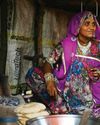
Across The Threshold
A social media campaign aims to bridge gaps between communities by urging people to visit ‘people unlike us’
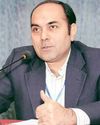
'How Can An Insurance Firm Promote Death?'
Dr Pankaj Chaturvedi, head and neck cancer surgeon at the Tata Memorial hospital in Mumbai, is a leading antitobacco activist. He joined hands with Sumitra Hooda Pednekar and others to file a PIL in the Bombay high court earlier this year, questioning the staterun insurance firm LIC’s investments in a leading cigarette-maker company. Edited excerpts from an interview with Geetanjali Minhas:
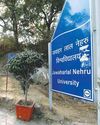
The Wolf And The Lamb
Social injustice and the fate of the university
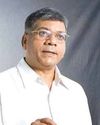
"Young Dalit Leaders Have Age, Situation On Their Side"
How do you see the rise of the Bhim Army in Uttar Pradesh?During the last assembly elections in UP, it was a common consensus among many [dalit leaders] that we’d give one more chance to Mayawati.

Timely Delivery
A veteran bureaucrat explains how to complete government projects without time and cost overruns.
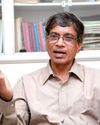
Cauvery Water Dispute
India’s leading water expert and president of the South Asia Consortium for Inter disciplinary Water Resources Studies, S Janakarajan, wonders why Chennai, a city that receives 1,250 mm rainfall, is called a thirsty city and goes on to explain to Shivani Chaturvedi what went wrong among the southern states that led to a water-war like situation. But, he warns that such a scenario will keep occurring if the government does not come up with a lasting solution.

Case Against Cash
Can you imagine a day without cash?